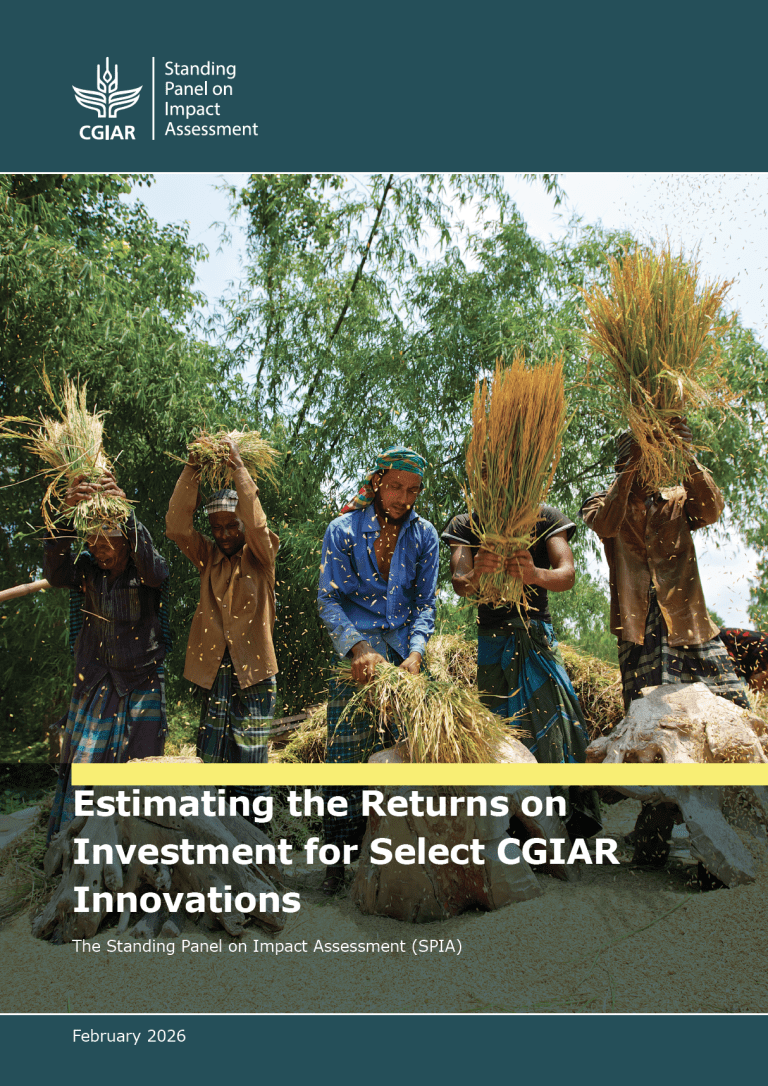On March 13th, the ADD-IN Ethiopia project led by the IPORA research consortium was officially launched in Addis Ababa with a day-long meeting that brought together an unusually wide mix of voices. Representatives from CGIAR centers, Ethiopian government agencies, national and international NGOs, the private sector, and academia converged with one shared interest: strengthening the impact of agricultural research and innovation in Ethiopia.
The stated objective was to present the research team, outline the activities planned for the next three years, and coordinate a timeline for future stakeholder engagement. However, the meeting quickly evolved into something more meaningful: a collective reflection on how research transforms into real-world impact—and what evidence is needed to make that process more effective.
Building on Solid Ground
The day began with a presentation by Dr. Frédéric Kosmowski on the most recent report from the Standing Panel on Impact Assessment (SPIA), whose findings lay the foundation for the ADD-IN Ethiopia project. Using panel data from the fourth and fifth rounds of the nationally representative Ethiopia Socioeconomic Panel Survey (ESPS), the report documents the change in the adoption of CGIAR-related agricultural innovations between 2018/19 and 2021/22.
Despite a period of immense instability marked by COVID-19, drought, and civil conflict, agricultural innovations in Ethiopia continued to scale up significantly. These innovations saw a remarkable and unexpected increase between 2018/19 and 2021/22, reaching between 5.8 to 11.5 million rural households. This growth was primarily driven by the increased adoption of drought-tolerant maize, which nearly doubled within three years, with contributions from forage and improved chicken innovations as well. Overall, the findings suggest that CGIAR-related agricultural innovations have played a crucial role in enhancing the resilience of rural households during a challenging period.
Read here the full report
While the strength and rigor of the research were broadly praised—"a way of validating CGIAR's work" noted one participant—it was another comment that captured the spirit of the day: “these studies can help the CGIAR to have even more impact on the ground.”
This idea of improvement through insight set the tone for the discussions that followed. Participants did not merely ask which innovations had worked; they sought to make sure the work of ADD-IN Ethiopia will further help understand why they had worked in some places and not in others. The conversation turned from documentation to explanation, and from validation to co-creation.
Three Emerging Lessons
By the end of the day, three key insights had emerged lessons that now form the core hypothesis for ADD-IN Ethiopia’s contribution over the next three years:
1. Innovation is the starting point. Without high-quality, context-relevant innovations, impact is impossible. This is the most direct contribution of CGIAR’s research mandate.
2. Partnerships are essential to scale. Even the most promising innovations cannot succeed without effective diffusion through networks of partners. These include national agricultural research systems (NARS), NGOs, cooperatives, extension services, private sector actors and farmers. This ‘middle space’ of the CGIAR’s impact pathway—between research and on-farm adoption—remains relatively unexplored and not yet fully documented. The ADD-IN Ethiopia project is expected to contribute valuable insights and bring new measurements to help bridge this gap.
3. Data is the lifeblood of impact. To "help CGIAR to have even more impact on the ground”, a continuous and data-grounded feedback loop is needed. This means monitoring what is working, where, and why—at all levels of the CGIAR's impact pathway in Ethiopia. It also means leveraging both existing and novel data sources (in particular panel data), innovating in new data sources and measures, and ensuring that insights are shared across institutions. This is a coordination role that ADD-IN Ethiopia is positioned to play.
Read here the 2-pager brief
Toward a Community of Practice
As the meeting closed, attendees left with a renewed sense of purpose and clear understanding of the challenge ahead. The project now faces a broader set of tasks than anticipated—an encouraging sign that expectations have been raised.
Three key commitments emerged:
- The stakeholder committee will be expanded to include more voices from across Ethiopia’s public and private sectors.
- A focused agenda of data collection and analysis has been set for the next six months, leading up to the next stakeholder meeting.
- A new “data community” will be established, aligned with existing data-sharing initiatives in the country. This community will be a space for mutual learning, joint analysis, and actionable insights to accelerate impact at scale.
After several intense hours of discussion, the representative of Addis Ababa University closed the meeting with an efficient summary:
“Research and innovation is like Ethiopian coffee: strong, energizing, and best enjoyed when shared.”



